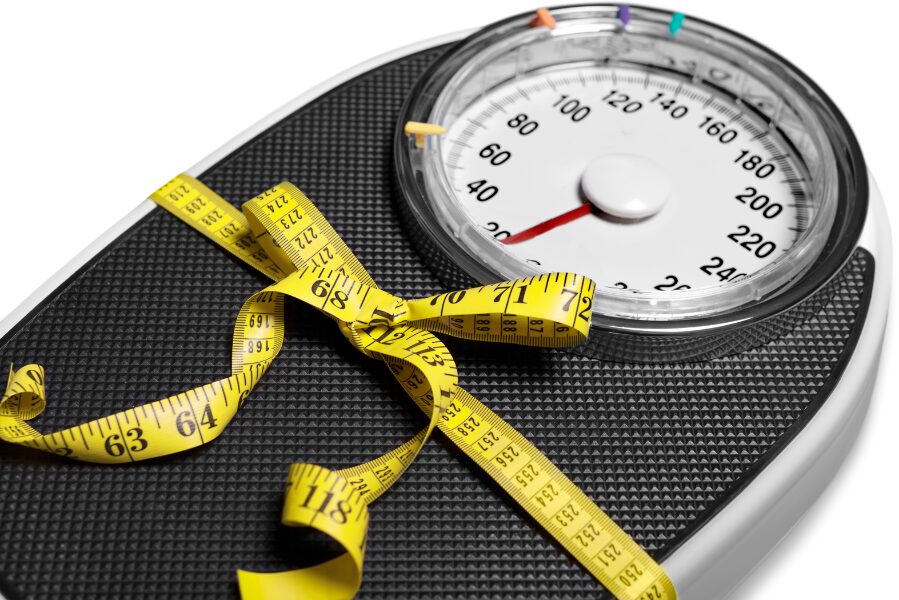If you’ve been taking Mounjaro as part of your weight loss journey, you might be wondering what happens if – or when – you stop taking it. Whether that’s because you’ve reached your goal, you’re experiencing side effects, or you’re simply reassessing your treatment – it’s completely normal to have questions about what comes next.
Knowing what to expect can help you feel more prepared to make the right decision for your health. So, in this guide, we explore what might happen when you stop taking Mounjaro. We explore potential withdrawal effects, how your appetite may change and what it could mean for your weight and any results you’ve seen up to now.
The withdrawal effects of stopping Mounjaro
As with many medications, stopping Mounjaro can lead to withdrawal effects for some. You might not experience any, and you’re unlikely to face all of them – but knowing what to look out for can help you recognise any changes in your body which in turn helps you to manage them.
Here are some of the more common withdrawal effects some people report after stopping Mounjaro:
Increased appetite
One of the first changes you may notice after stopping Mounjaro is an increased appetite.
Mounjaro works as an appetite suppressant. It does this by mimicking hormones which help you feel fuller for longer while also slowing down how quickly food leaves your stomach. When you stop taking it, that support goes away – so you may start to feel hungrier or notice hunger more often than you did while on Mounjaro.
This doesn’t mean your appetite will go back to how it was before you started treatment, but you may need to find new ways to manage hunger and avoid unplanned snacking. If you’re worried about going off track, aim to keep a healthy balance by being mindful of what you eat and by sticking to regular meal routines.
Weight gain
Along with an increased appetite, some people notice weight gain after stopping Mounjaro. This often happens when eating habits shift, especially if your hunger returns before you’ve had time to properly adjust your routine.
Mounjaro can also help with fat metabolism, which affects how your body breaks down and uses fat for energy. When you stop taking it, your body may start to process food differently and store more energy as fat.
Weight changes after stopping Mounjaro are common, but any changes don’t mean you’ve failed in your journey. You may find it helpful to speak with your clinician or a health expert about creating a post-treatment plan that provides nutrition, activity and mindset support to help you maintain progress in a healthy and balanced way.
Blood sugar changes
Because Mounjaro affects how your body regulates insulin and blood sugar levels, stopping it can lead to noticeable changes in those levels. This is especially true if you’ve been using the medication to help manage type 2 diabetes. As a result, you may see a rise in your blood glucose or experience more noticeable blood sugar swings.
Do you gain weight back after stopping Mounjaro?
Putting weight back on can happen after stopping Mounjaro, but it isn’t guaranteed. Everyone responds differently, and how your body reacts depends on a few factors, such as:
- how long you were taking the medication
- your eating habits
- your physical activity
- how your body manages hunger and blood sugar without the medication’s support
How likely is weight regain after Mounjaro?
In clinical studies, it’s true to say that some people did regain weight after stopping medications like Mounjaro. This usually happens gradually, but it can happen more quickly if your appetite significantly increases or old habits return.
But weight gain after stopping doesn’t mean your progress is lost. Your body is adjusting and that takes time. Staying in touch with your clinician or health advisor and having a plan in place – whether that means changing your diet, moving more or exploring other treatment options – helps you stay in control and feel more confident as you move forward.
How to come off Mounjaro without gaining weight
Weight gain after Mounjaro isn’t inevitable. You can take steps to help manage your weight once treatment ends. Here are three key strategies to help you stay on track:
1. Sustainable diet
A balanced diet which you can sustain plays a big role in weight maintenance after Mounjaro. Focus on meals that keep you full and satisfied, think:
- lean proteins such as chicken breast and tofu
- whole grains such as brown rice
- healthy fats such as avocado and olive oil
- fibre-rich vegetables such as broccoli and carrots
Rather than following strict rules or cutting out entire food groups, aim for consistency and portion control. This helps you to reduce the risk of overeating, which
2. Regular exercise
Staying active supports both your metabolism and mental wellbeing. That doesn’t mean you need to commit to intense workouts to see results – walking regularly, strength training a few times a week or finding any type of movement you enjoy can all make a big difference.
3. Weaning off Mounjaro for weight maintenance
Rather than stopping suddenly, you could opt to gradually reduce your dose of Mounjaro. This weaning process gives your body time to adjust and may help ease the return of appetite or other changes. It also allows you time to build healthy habits as well, giving you more control as you transition off the medication.
Always speak to your clinician or a health advisor before making any changes to your treatment plan.
Blood sugar changes after stopping Mounjaro
If you monitor your blood sugar at home, keep a close eye on your readings in the weeks after stopping Mounjaro. Some changes are to be expected, but if anything feels unusual or concerning you should speak to your GP. They may suggest another type of medication or adjust your current treatment plan to help keep your blood sugar levels stable.
Stopping Mounjaro doesn’t have to mean starting over – but it does help to stay informed and supported.








